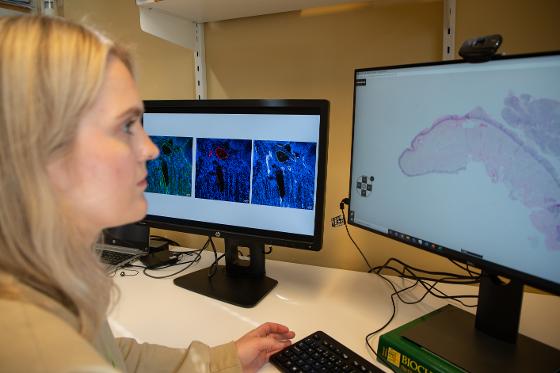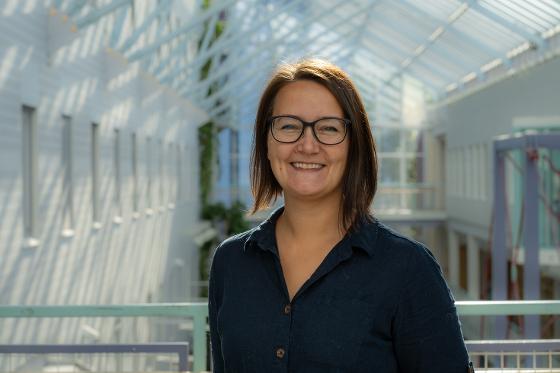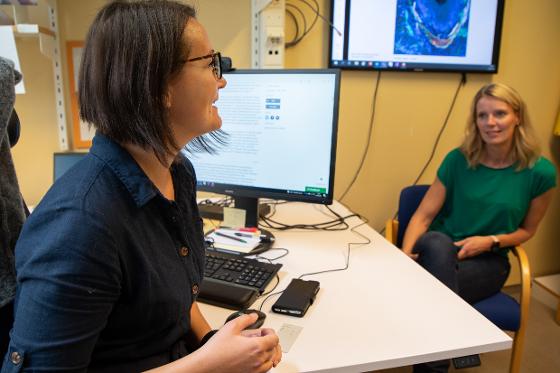Inflammation in oral cancer
Oral cancer is a heterogeneous and aggressive disease with poor survival rates. Current treatments include surgery and radiotherapy, and few targeted treatments exist today. Treatment-related side effects are often serious and life-long, including dry mouth, speech impairment, challenges with eating and drinking, changes in the taste and smell sensation, dental problems as well as disfiguring defects after surgery. There is a clear need for better treatment options that improve survival and reduce the treatment-related side effects.

Foto: Jørn Berger-Nyvoll/UiT
The tumour microenvironment, including immune cells and signalling molecules, may have a huge impact on the progression of cancer. Depending on the immune composition, cancers may either regress or progress. In this project we are studying the immune infiltrate at different stages of oral cancer progression. For this we study human tissue samples together with in vitro and in vivo models. The spectrum of methods employed includes immunohistochemistry, in situ hybridisation, RT-qPCR, FACS, Luminex, bioinformatics as well as primary and cell culture-based methods. Our goal is to understand the mechanisms that drive the anti-cancer immune responses to enable better treatment options for oral cancer patients.

.png)
Foto: Kjersti Sellæg/UiT
Publications
 |
Hadler-Olsen, E. & Wirsing, A.M. (2019) Tissue-infiltrating immune cells as prognostic markers in oral squamous cell carcinoma: a systematic review and meta-analysis British Journal of Cancer 120, 714-727. |
 |
Wirsing, A.M., Ervik, I.K., Seppola, M., Uhlin-Hansen, L., Steigen, S.E. & Hadler-Olsen, E. (2018) Presence of high-endothelial venules correlates with a favorable immune microenvironment in oral squamous cell carcinoma Modern Pathology 31:910–922. |
 |
Wirsing, A.M., Rikardsen, O.G., Steigen, S.E., Uhlin-Hansen, L. & Hadler-Olsen, E. (2015) Presence of tumour high-endothelial venules is an independent positive prognostic factor and stratifies patients with advanced-stage oral squamous cell carcinoma Tumor Biology 37, 2449-2459. |
 |
Wirsing, A.M., Rikardsen, O.G., Steigen, S.E., Uhlin-Hansen, L. & Hadler-Olsen, E. (2014) Characterisation and prognostic value of tertiary lymphoid structures in oral squamous cell carcinoma BMC Clinical Pathology 14, 38. |
Completed PhDs
 |
2018 The immune microenvironment in oral squamous cell carcinoma. Characterization and prognostic markers Link to doctoral thesis: https://munin.uit.no/handle/10037/28606 |


Foto: Jørn Berger-Nyvoll/UiT
Contact person: Synnøve Magnussen